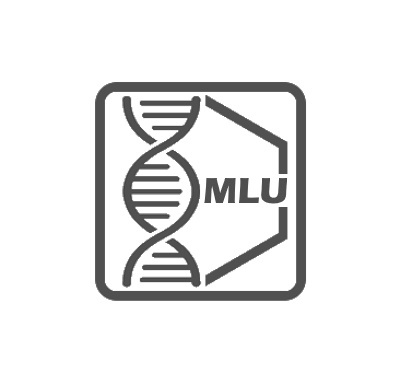Mechthild Hatzfeld
Prof. Mechthild Hatzfeld
Institute of Molecular Medicine
Pathobiochemistry
Hollystrasse 1
06114 Halle (Saale)
phone: 0049 (0) 345-55 74422
mechthild.hatzfeld@medizin.uni-halle.de
Role of the multi-functional proteins plakophilin 1 and 3 in cancerogenesis
Plakophilins 1-3 are components of intercellular contacts of the desmosomal type that are essential for tissue cohesion. Loss of intercellular adhesion is a hallmark of cancer cells. Accordingly, many studies addressed the role of desmosomes in carcinogenesis. However, the results are rather confusing since an up-regulation as well as a down-regulation as well as unaffected expression was reported. This led to the suggestion that the role of desmosomes is “context dependent”. However, so far this “context” has not been defined.
We have recently characterized a non-desmosomal function of plakophilin 1 in stimulating protein synthesis. This function correlated with the regulation of proliferation and cell size. In order to elucidate how the dual functions of plakophilin 1 in desmosomal adhesion and in translational control are regulated in the cell we have begun to study its regulation via growth factor signaling. Phosphorylation of plakophilin 1 by Akt2 correlated with its cytoplasmic localization and an upregulation of translation whereas a mutant that cannot be phosphorylated remained predominantly desmosomal. Moreover, we found that a phospho-mimetic mutant acquired the capacity of anchorage-independent growth in soft agar. Taken together, these data suggest that plakophilin 1 contributes to the context dependent role of desmosomes in the process of carcinogenesis.
The aim of the proposed project is to define the context that determines whether plakophilin 1 and/or plakophilin 3 act as tumor suppressors by enhancing cell cell adhesion or as tumor promoters by stimulating proliferation and migration in vitro and in vivo.

summary of plakophilin 1 regulation by insulin/AKT2 signaling




